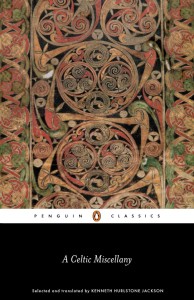Discussion on pop music lyrics and meaning, from fans and critics alike, frequently feel like an exercise in missing the point. Ripped from the context of their 3 minutes and 45 second productions, they lose most, if not all of their weight. Recognizing that, I’d still like to take a stab at identifying a few patterns.
Possibly against my better judgement, I’ve binge-listened through Ellie Goulding’s new “huge pop” album Delerium quite a few times this week. As most of the songs come from the Swedish production and writing engines of folks like Max Martin and Klas Ahlund, it’s impossible to tell how much, if any input the singer/artist on the label had on the musical direction. The crafting of the vocal takes and synths is magnificent though, even on some of the weak or obnoxious tracks.
On the album we hear a lot of lines like:
I just move as my heart commands
(from “Scream It Out”)You got yourself in a dangerous zone
Cause we both have the fear, fear of being alone
(from “On My Mind”)But tonight I’m gonna lose it all
Playing with fire, I was the first to fall
Heart is sinking like a cannonball
Baby kill it, what’re you waiting for?
(from “Something in the Way You Move”)
There is often a deep self-awareness of weaknesses and limitations, coupled with a passionate abandon. One moment, she’s a reflective outside observer, the next moment she’s the actor – making serial youthful bad decisions to get high and dance all night, spend the night with a stranger, etc.
Nearly every other track on the 23-tune deluxe album features this tension in some form. Youth vs. maturity, spontaneity vs. memory, sin(?) vs. wisdom. Sia’s 1000 Forms of Fear album from last year (that I discussed here) frequently employed the same shtick: Trapped in addiction but going to live it up(?). Trapped in a bad relationship but gonna be tough(?). I’m sure if my knowledge of the last 20 years of Top 40 was more encyclopediac I would find no shortage of examples. Or maybe not.
The one that comes to mind at the moment is Sheryl Crow’s “Favorite Mistake” (1998). One gets the impression on listening that despite her newfound wisdom, she would make the same mistake over again if given a time machine. It seems that the 3:45 pop song is a “safe place” where one can reminisce on one-night stands, recalling the youthful excitement while distancing oneself from the destructive aftermath. Growing up in Evangelical culture, I was incessantly warned about this kind of whitewashing and I won’t argue with the veracity of that take. But it seems that these songs also have an incredible vicarious therapeutic value that is rarely acknowledged or discussed. At the end of the day though, I think that’s often why we like them, though the “why?” resists analysis.
It seems that most of U2’s writing takes this tension of reflection a further step back. When Bono sings…
The DNA lottery may have left you smart
But can you stand up to beauty, dictator of the heart
(from “Stand Up Comedy”)Are we so helpless against the tide?
Baby, every dog on the street
Knows that we’re in love with defeat
Are we ready to be swept off our feet
And stop chasing every breaking wave?
(from “Every Breaking Wave”)I’ve had enough of romantic love
I’d give it up, yeah, I’d give it up
For a miracle, a miracle drug, a miracle drug
(from “Miracle Drug”)
…he’s more skeptical of his own memory, of his own passions and ability to make the right decision, even in the present. In short, love is still the subject, but he’s moved on from reflecting on romance to thinking about God. An extra 25 years will do that to you.
The above is all just an exercise in wondering out loud about something I’d like to understand more. But dear reader, don’t think too hard about it. Instead, listen to everything great about this:




